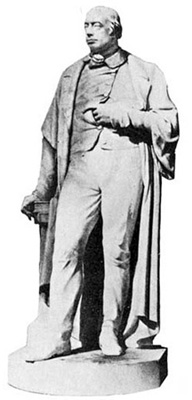Hare, David
Hare, David (1775-1842) a Scotch philanthropist. David Hare came to Calcutta to make fortune out of watch making. The new colonial state offered opportunities to artists and artisans to come to Bengal and sell their services as painters, shoemakers, tailors, hairdressers and so on. David Hare, born in an ordinary watch making artisan family of Scotland, came to Calcutta in 1800. By making and repairing watches, Hare made reasonable fortune and he might go back home and spend the rest of his life comfortably. But unlike most other adventurers of his time, Hare resolved to make Bengal his home and dedicate his life to the welfare of the depressed humanity.

David Hare’s first major initiative as a social benefactor was the establishment of the hindu college. It was Hare who developed the idea of founding a school for English education among the natives. He motivated Hyde East, Chief Justice of the Calcutta Supreme Court, to support his initiative. Hyde East’s interest in the idea inspired many native gentlemen with whose cooperation the college was established on 20 January 1817. Next year, Hare founded the calcutta school-book society for printing and publishing English and Bengali books.With a view to devoting full time to social work, David Hare transferred his business concerns to one Gray in January 1820. Gray was his assistant and possibly a relative with whom he continued to live in Hare Street (after his name) till death.
Formerly he bought considerable landed property in Calcutta. A part of the property he donated to Hindu College and the rest he sold tosanskrit college at nominal price as a form of patronage to the college.
David Hare maintained very close contact with Raja rammohun roy and henry derozio. As a guru of the young bengal, Hare became the patron of their organisation, 'Society for the Promotion of General Knowledge' (1838). He created public opinion against the cruel Indentured Labour Law under which labourers were to be transported to plantation colonies like slaves. He advocated for the reforms of colonial laws that appeared to him oppressive and inhuman. He fought for lifting the restrictions on native press. He also argued for the extension of trial by jury, hitherto confined to Calcutta only, to the district courts as well.
In funding new schools and other learned organisations, Hare lavishly spent his resources and had to take debt from others. As a great link between the natives and the Anglo-Indians the government found it worthwhile to bail him out of indebtedness by making him a Sheriff of Calcutta in 1840 at a salary of Rs.1000 per month. But Hare died suddenly of cholera on 1 June 1842.
Irrespective of caste and creed, religion and race, all mourned his death. The Calcutta public raised a memorial statue of him by public subscriptions. The Memorial Statue (1847) reads that Hare 'having acquired an ample competence cheerfully relinquished the prospect of returning to enjoy it in his native land in order to promote the welfare of that of his adoption'. Several schools and roads of Calcutta were named after him in his honour. David Hare never married.
What Derozio did intellectually, David Hare did organisationally and socially. It is said that under the given social circumstances, the Calcutta Medical College would not have drawn students at all without David Hare's incessant canvassing with the Hindu society in favour of the college. Hare launched the social movement for female education by establishing several informal female schools in Calcutta. The contemporary native gentlemen highly respected him because he had no personal interest to grind in social work. His personal sacrifices were very clear and absolute. Furthermore, he spoke Bangla, adopted native food habit and often dressed himself in native style and joined all social festivals of the natives. [Sirajul Islam]
